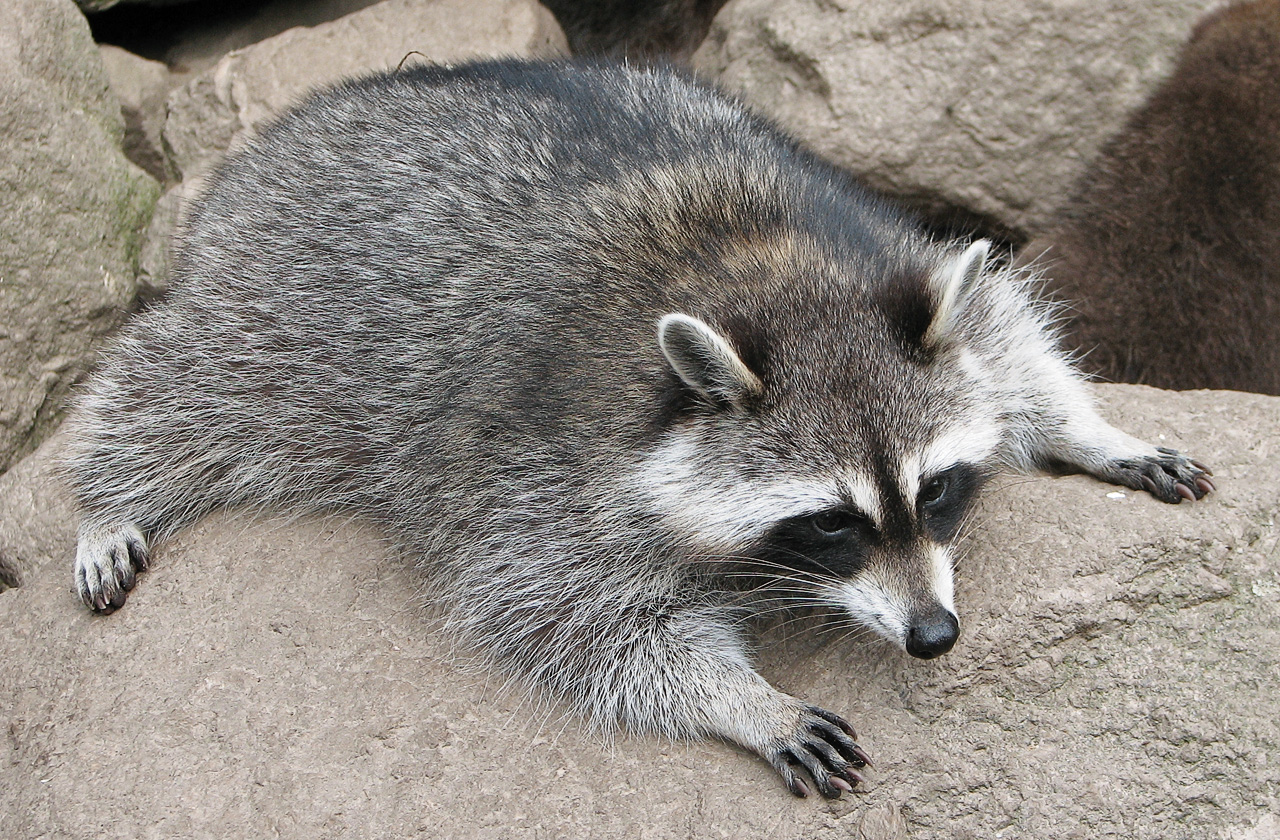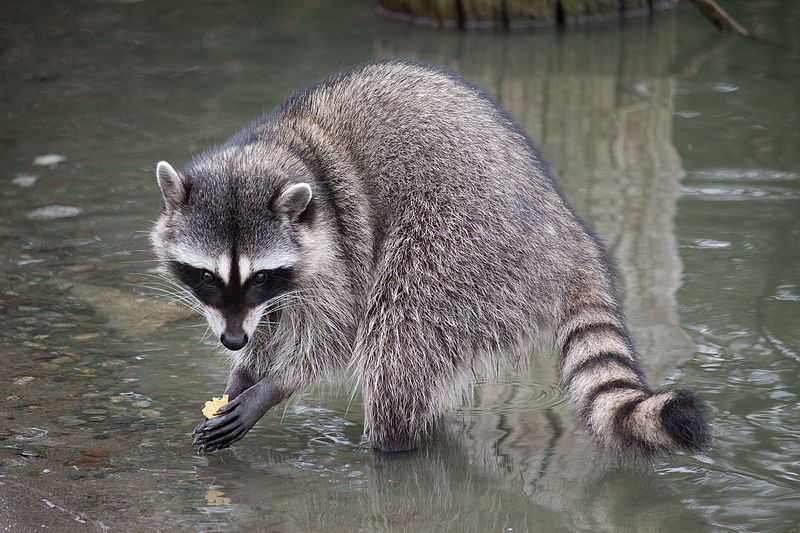Yes, but there are more effective and humane ways to deter these clever critters.
Raccoons might look cute with their masked faces and dexterous little paws, but when they start rummaging through your trash or setting up camp in your attic, they quickly lose their charm. If you’re like many homeowners, you’ve probably searched high and low for ways to keep these crafty critters at bay. Among the myriad of DIY solutions floating around, one stands out for its sheer simplicity and widespread mention: ammonia.
But does it really work? Before you start dousing your yard in the pungent stuff, let’s take a closer look. In this article, we’ll dive into the effectiveness of ammonia in deterring raccoons and explore some more effective and humane ways to protect your home and garden. By the end, you’ll have a toolkit of solutions to keep those pesky raccoons at a respectful distance.
Key Takeaways
- Ammonia can deter raccoons but isn’t the safest or most effective option.
- There are better, more humane, and environmentally friendly alternatives.
- Understanding raccoon behavior can help in finding long-term solutions.
Understanding Raccoons
To tackle any problem effectively, it helps to understand the root cause. In this case, that means getting to know a bit about raccoons. These nocturnal creatures are incredibly adaptable, making them successful urban dwellers as well as countryside residents.
Raccoons are omnivores with a diet that includes fruits, nuts, insects, small animals, and, unfortunately for us, our garbage. Their dexterous paws are capable of opening jars, latches, and, yes, trash cans. This ability to manipulate objects makes them particularly troublesome for homeowners.
Why do raccoons invade our spaces? Primarily, it’s the search for food and shelter. Gardens with tasty vegetables, trees bearing fruit, and accessible pet food bowls are like a buffet for raccoons. Your attic or chimney offers a cozy, safe place for them to nest, especially if they’re looking to raise their young.
Understanding these motivations is crucial. It’s not that raccoons have a personal vendetta against your peaceful home – they’re simply looking for an easy meal and a safe place to live. This knowledge will guide us in finding effective ways to deter them without causing harm.
Raccoons are also known for their intelligence and curiosity. They have a strong memory and problem-solving skills, which means simple deterrents might not be enough to keep them away for good. However, this same intelligence can be used against them by creating environments they find unattractive or hard to navigate.
Armed with this understanding of raccoon behavior, we’re better prepared to explore whether ammonia and other methods can keep these clever critters at bay. Let’s dive into the specifics of using ammonia next.

The Ammonia Myth
If you’ve ever googled “how to get rid of raccoons,” you’ve probably come across the suggestion to use ammonia. The idea is simple: ammonia smells like predator urine, which should theoretically send raccoons running for the hills. But does it really work, or is it just another urban legend?
The theory behind using ammonia to deter raccoons stems from their strong sense of smell and instinctive fear of predators. Ammonia’s pungent odor is supposed to mimic the urine of animals like coyotes and bobcats, which raccoons naturally avoid. In theory, this sounds like a clever, natural solution.
However, the reality is a bit more complicated. While ammonia might initially deter raccoons due to its strong smell, this method has significant limitations. For one, ammonia’s odor dissipates quickly, especially outdoors. You would need to reapply it frequently, turning your home into a veritable ammonia factory – not exactly pleasant for you or your neighbors.
Moreover, raccoons are highly adaptable and intelligent creatures. They may be temporarily put off by the smell, but they’re likely to return once they realize there’s no real threat. In essence, ammonia might buy you a little time, but it’s far from a long-term solution.
There’s also the matter of safety. Ammonia can be harmful to pets, children, and other wildlife. Its fumes are irritating and can cause respiratory issues if inhaled in large quantities. Spilling it in your garden or yard could also harm plants and soil health.
In short, while ammonia might seem like a quick fix, its effectiveness is limited and its downsides are significant. There are better, safer, and more humane ways to deter raccoons from making themselves at home on your property. Let’s explore some of these alternatives next.
Risks and Downsides of Using Ammonia
While the idea of using ammonia to deter raccoons might seem appealing at first, it’s essential to consider the potential risks and downsides associated with this method. Here are a few reasons why ammonia might not be the best choice for dealing with raccoons:
Environmental Impact
Ammonia is a strong chemical that can have adverse effects on the environment. When used outdoors, it can seep into the soil and affect plants, potentially harming your garden. It can also contaminate water sources if it runs off into nearby streams or rivers.
Health Risks
The pungent fumes of ammonia are not just unpleasant; they can be harmful to both humans and animals. Inhaling ammonia can cause respiratory issues, throat irritation, and eye irritation. This is especially concerning if you have pets or young children who might come into contact with areas treated with ammonia.
Limited Effectiveness
As mentioned earlier, ammonia’s smell dissipates quickly, meaning you’ll need to reapply it frequently. Raccoons are also clever and can quickly figure out that there’s no real threat associated with the smell. They may avoid the area initially, but their curiosity and determination can lead them back once the scent fades.
Temporary Solution
Ammonia provides only a temporary deterrent. Since it doesn’t address the root causes of why raccoons are attracted to your property (food, shelter, etc.), it’s not a sustainable long-term solution. You’ll likely find yourself in a constant cycle of reapplication and frustration.
Potential for Harm to Other Wildlife
Ammonia doesn’t discriminate. Its strong odor and chemical properties can deter or harm other wildlife that might be beneficial to your garden or ecosystem. Birds, beneficial insects, and other non-target animals might be adversely affected.
Effective Alternatives to Ammonia
If ammonia isn’t the best solution for keeping raccoons at bay, what can you do instead? Fortunately, there are several effective and humane alternatives that can help protect your home and garden from these pesky intruders. Let’s explore some of the most effective strategies:
Secure Your Trash
- Raccoon-Proof Trash Cans: Invest in heavy-duty trash cans with locking lids that raccoons can’t open. Metal cans with secure latches work best.
- Trash Storage: Store trash cans in a shed or garage until collection day to minimize exposure.
Remove Food Sources
- Pet Food: Avoid leaving pet food outside overnight. Feed your pets indoors or remove any leftover food after they’ve eaten.
- Bird Feeders: Clean up spilled birdseed regularly and consider using raccoon-proof bird feeders.
- Gardens and Fruit Trees: Harvest ripe fruits and vegetables promptly and clean up any fallen produce. Consider installing fencing or netting around gardens and fruit trees.
Home Modifications
- Seal Entry Points: Inspect your home for potential entry points, such as gaps in the roof, attic vents, chimneys, and crawl spaces. Use hardware cloth, caulk, or other materials to seal these openings.
- Chimney Caps: Install a chimney cap to prevent raccoons from entering your home through the chimney.
Natural Deterrents
- Motion-Activated Devices: Install motion-activated lights, sprinklers, or noise makers around your property. These devices startle raccoons and make your yard less inviting.
- Repelling Plants: Plant herbs and flowers that raccoons find unappealing, such as peppermint, garlic, and marigolds. These plants can help create a natural barrier.
Humane Trapping and Relocation
- Live Traps: If raccoons have already taken up residence, consider using live traps to capture and relocate them. Ensure you check local regulations, as trapping and relocating wildlife is subject to specific laws.
- Professional Help: For persistent problems, consider hiring a wildlife control professional. They can safely and humanely remove raccoons and offer advice on preventing future infestations.
Maintain a Clean Yard
- Remove Attractants: Keep your yard clean and free of debris. Trim back overgrown shrubs and trees that provide cover for raccoons.
- Secure Compost Bins: Use raccoon-proof compost bins and avoid composting meat or dairy products, which can attract raccoons.
Long-Term Solutions
When dealing with raccoons, it’s crucial to think beyond quick fixes. While ammonia might send them packing temporarily, creating a raccoon-free environment requires a more strategic approach. Let’s dive into some long-term solutions that not only keep these critters at bay but also maintain harmony in your yard.
Secure Garbage and Food Sources
Raccoons are notorious for their scavenging habits, often driven by the scent of easily accessible food. To eliminate this temptation:
- Use Raccoon-Proof Trash Cans: Invest in heavy-duty bins with locking lids. Not only do these keep raccoons out, but they also deter other pests.
- Regularly Clean Trash Areas: Even if raccoons can’t get into your bins, the smell of food residue can attract them. Rinse out trash cans periodically and use strong-smelling cleaners.
- Pet Food Storage: If you feed pets outside, bring in their dishes after mealtime. Store pet food in airtight containers inside your home.
Regular Yard Maintenance
A well-maintained yard can be less appealing to raccoons. Here are some simple steps:
- Trim Trees and Shrubs: Raccoons are excellent climbers. By trimming tree branches that hang over your roof or near windows, you reduce their access points.
- Remove Debris: Piles of leaves, wood, and other debris can create cozy hiding spots. Keep your yard tidy and clear.
- Secure Compost Bins: Use raccoon-proof compost bins or ensure your existing ones are tightly sealed.
Physical Barriers
Sometimes, a physical barrier is the most straightforward deterrent:
- Fencing: Install a sturdy fence around your garden and other vulnerable areas. Opt for a fence at least 4 feet high, with the top foot angled outward to prevent climbing.
- Chimney Caps and Vents: Raccoons love cozying up in chimneys and attics. Installing caps and securing vents can block these entry points.
Professional Wildlife Control Services
If raccoons have become more than a nuisance, it might be time to call in the pros:
- Humane Trapping: Wildlife control experts can set up humane traps to catch and release raccoons far from your home. Ensure they comply with local wildlife regulations.
- Exclusion Services: Professionals can identify and seal entry points around your home, preventing future invasions.
- Ongoing Monitoring: Regular check-ins from wildlife control can help maintain a raccoon-free environment.
Conclusion
Recapping the drawbacks of using ammonia: it’s not just about the smell or the potential health risks. It’s about finding solutions that work in the long run, keeping both your family and the raccoons safe. By securing food sources, maintaining your yard, using physical barriers, and, when necessary, calling in the experts, you can create a raccoon-free haven.














